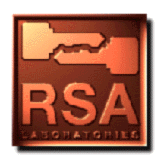

The NSA is the National Security Agency, a highly secretive agency of the U.S. government that was created by Harry Truman in 1952; its very existence was kept secret for many years. For a history of the NSA, see Bamford [Bam82]. The NSA has a mandate to listen to and decode all foreign communications of interest to the security of the United States. It has also used its power in various ways (see Question 149) to slow the spread of publicly available cryptography in order to prevent national enemies from employing encryption methods too strong for the NSA to break.
As the premier cryptographic government agency, the NSA has huge financial and computer resources and employs a host of cryptographers. Developments in cryptography achieved at the NSA are not made public; this secrecy has led to many rumors about the NSA's ability to break popular cryptosystems like DES (see Question 64), as well as rumors that the NSA has secretly placed weaknesses, called "trap doors," in government-endorsed cryptosystems. These rumors have never been proved or disproved, and the criteria used by the NSA in selecting cryptography standards have never been made public.
Recent advances in the computer and telecommunications industries have placed NSA actions under unprecedented scrutiny, and the agency has become the target of heavy criticism for hindering U.S. industries that wish to use or sell strong cryptographic tools. The two main reasons for this increased criticism are the collapse of the Soviet Union and the development and spread of commercially available public-key cryptographic tools. Under pressure, the NSA may be forced to change its policies.